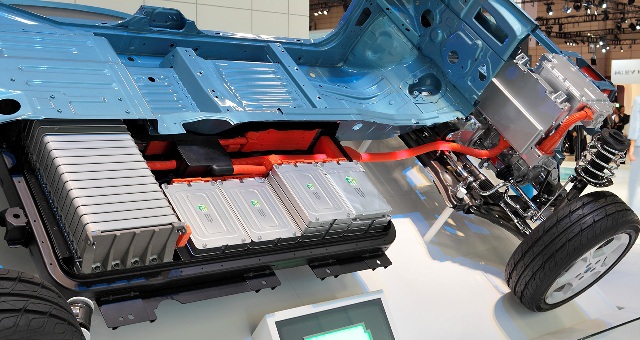
New recipe for efficient Recycling of EV Batteries
London, 20 October 2023, (Oilandgaspress) – Researchers at Chalmers University of Technology, Sweden, are now presenting a new and efficient way to recycle metals from spent electric car batteries. The method allows recovery of 100 per cent of the aluminium and 98 per cent of the lithium in electric car batteries. At the same time, the loss of valuable raw materials such as nickel, cobalt and manganese is minimised. No expensive or harmful chemicals are required in the process because the researchers use oxalic acid – an organic acid that can be found in the plant kingdom. In Chalmers’ battery recycling lab, Rouquette and research leader Martina Petranikova show how the new method works. The lab has spent car battery cells and, in the fume cupboard, their pulverised contents. This takes the form of a finely ground black powder dissolved in a transparent liquid – oxalic acid. Rouquette produces both the powder and the liquid in something reminiscent of a kitchen mixer. Although it looks as easy as brewing coffee, the exact procedure is a unique and recently published scientific breakthrough. By fine-tuning temperature, concentration and time, the researchers have come up with a remarkable new recipe for using oxalic acid – an environmentally friendly ingredient that can be found in plants such as rhubarb and spinach.
Reversing order and avoiding the loss
The aqueous-based recycling method is called hydrometallurgy. In traditional hydrometallurgy, all the metals in an EV battery cell are dissolved in an inorganic acid. Then, you remove the “impurities” such as aluminium and copper. Lastly, you can separately recover valuable metals such as cobalt, nickel, manganese and lithium. Even though the amount of residual aluminium and copper is small, it requires several purification steps and each step in this process can cause lithium loss. With the new method, the researchers reverse the order and recover the lithium and aluminium first. Thus, they can reduce the waste of valuable metals needed to make new batteries.
The latter part of the process, in which the black mixture is filtered, is also reminiscent of brewing coffee. While aluminium and lithium end up in the liquid, the other metals are left in the “solids”. The next step in the process is to separate aluminium and lithium.
Information Source: Read More
Energy ,Petrol , Electric Power , Natural Gas , Oil , Climate , Renewable , Wind , EV , LPG , Solar , Electric , Electric Vehicles, Hydrogen, Oil Price ,Crude Oil, Supply, Biomass , Sustainability,

